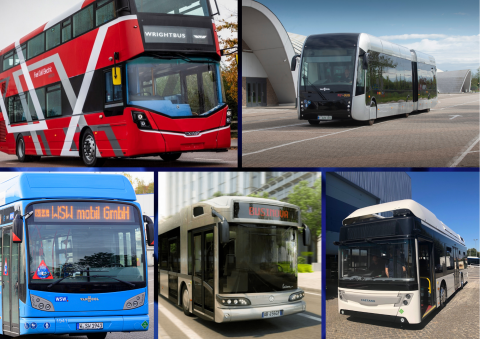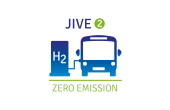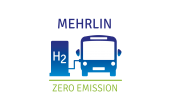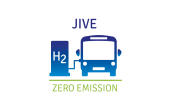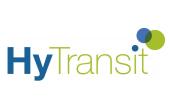The Joint Initiative for Hydrogen Vehicles across Europe project (JIVE & JIVE 2), co-financed by the Fuel Cells and Hydrogen Joint Undertaking (FCH JU), has today announced that over 200 hydrogen fuel cell buses have been ordered through the initiative. Furthermore, the first 50 buses are now in operation!
Eleven European cities and regions – Aberdeen (UK), Auxerre (FR), Barcelona (ES), Birmingham (UK), Emmen (NL), Groningen (NL), London (UK), South Holland (NL), South Tyrol (IT), Toulouse (FR), and Wiesbaden (DE) – will join locations already operating hydrogen-powered buses through JIVE by the end of 2021.
The first 50 buses operating in Cologne (DE), Pau (FR) and Wuppertal (DE) are already in regular service on some of the cities’ most demanding routes. Through the JIVE projects, German transport company Regionalverkehr Köln GmbH (RVK) operates the largest fleet of fuel cell buses in Europe to date: 35 buses. This will increase to 50 by the end of 2021.
The deployment of zero-emission vehicles, such as battery-electric and fuel cell buses, is contributing to the decarbonisation of public transport in Europe. Fuel cell buses offer a zero-emission solution on a wide range of routes thanks to their long-range and short refuelling time while providing the same operational flexibility as buses powered by fossil fuels.
The JIVE project is catalysing the development of Europe’s hydrogen bus sector and will help ensure that fuel cell buses can contribute to meeting the requirements of the Clean Vehicle Directive. According to UITP forecasts, a minimum of 22.5% of all new buses ordered next year across Europe will have to be zero-emission to comply with the legislation.
European industry players have also increasingly entered the fuel cell bus market through the JIVE projects. European bus manufacturers such as Caetano, Safra, Solaris, and Van Hool have shown their commitment to commercialising these vehicles.
The JIVE projects have additionally laid the foundations for further growth of the European fuel cell bus sector. Follow-up initiatives to introduce more vehicles in other parts of Europe are already being implemented: the H2Bus Europe initiative, for example, aims to deploy 600 buses in Denmark, Latvia, and the UK.
To share lessons learned to date with others looking to deploy fuel cell buses, the project partners have published a best practice report which is available on the project website. In addition, the UITP Knowledge Brief “Fuel Cell Buses: Best Practices and Commercialisation Approaches” provides a Best Practice Case Study. The brief is available in eight European languages.
Michael Dolman, Element Energy Associate Director, said, “JIVE is a strategically important project for Europe’s fuel cell bus market, and I’m delighted to see this important milestone achieved, especially in the context of challenges facing the public transport sector caused by the coronavirus. We’re observing a growing interest in the technology from a range of cities and bus operators across Europe and beyond, which suggests significant potential for further expansion through the 2020s. Element Energy is looking forward to continuing to support the consortium in the next phase of the programme, which will further demonstrate the role that hydrogen can play in facilitating the transition to zero-emission transport with a minimal compromise for fleet operators.”
Bart Biebuyck, Executive Director of the FCH JU, said, “In 2012, the FCH JU released a study on the path for commercialisation of fuel cell buses, forecasting that 300 to 400 ordered buses by 2020 would be the key threshold to trigger the market. This is exactly what the JIVE projects have achieved, by deploying bus fleets of up to 35 buses. The order of the 200th fuel cell bus is an important milestone for this clean technology for public transport. Many more orders for fuel cell buses will follow still this year, demonstrating its performance and cost benefits.”

